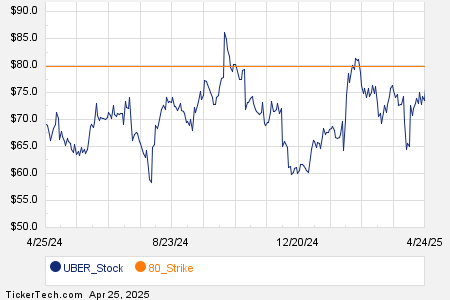Creating a resilient stock portfolio can equip investors to handle economic downturns with greater assurance. While complete immunity to a recession isn’t feasible, choosing stable stocks from defensive sectors and diversifying investments can significantly lessen the risks posed by market declines. Collaborating with a financial advisor can further enable portfolio diversification to help mitigate potential losses.
Impact of Recessions on Markets and Portfolios
Investing during a recession presents unique challenges compared to a flourishing market. In prosperous times, growth tends to foster consumer spending and business expansion, which enhances corporate earnings and supports rising stock prices.
Conversely, a recession typically results in decreased economic activity, diminished consumer spending, and lower business profits. Many companies may respond by cutting expenses, halting hiring, and scaling down operations, leading to a broad decline in stock prices and heightened market volatility.
For investors, this downturn can lead to portfolio losses, especially within cyclical stocks linked to sectors such as retail, travel, and luxury goods that are sensitive to economic conditions. These cyclical stocks often struggle in recessions as consumers reduce spending on non-essential items and businesses tighten financial belts.
Defensive stocks, however, tend to fare better during economic downturns. Companies in sectors like healthcare, utilities, and consumer staples still experience demand, as they provide essential goods and services that people need regardless of the economic situation.
Effectively managing a portfolio during a recession requires a keen awareness of increased risks and a focus on assets that provide stability and defensive growth. This might necessitate a shift from high-volatility sectors toward more resilient stocks and assets that have proven to withstand previous downturns.
Why Diversification Matters
Diversification serves as a fundamental strategy for protecting a portfolio during a recession. By spreading investments across various asset classes and sectors, investors can minimize the risk of significant losses if one market area falters. A well-rounded portfolio typically features a blend of stocks, bonds, and other assets which may respond differently to economic changes.
During times of recession, it becomes crucial to diversify, as various asset classes react differently to economic pressures. For instance, while stocks may drop, certain bonds or defensive sector stocks might continue to perform robustly, contributing to a balanced portfolio that reduces the chance of substantial losses.
Incorporating diversity across industries, asset classes, and geographic locations can enhance the portfolio’s strength, thus offering better protection for investments amid economic fluctuations.
Steps to Create a Recession-Resistant Stock Portfolio

While no stock portfolio can claim complete recession-proof status, you can strive to build a diversified portfolio designed to endure economic downturns. A comprehensive strategy should include a variety of asset classes, featuring both defensive and growth-oriented stocks.
To begin, focus on companies that exhibit strong fundamentals, stable earnings, and low debt levels. Those providing high dividends may offer further stability, as dividend payouts provide ongoing income, potentially offsetting declines in share prices.
It is also wise to consider companies with a track record of solid performance during previous recessions, as their historical resilience can be a reassuring factor.
Striking a balance between defensive stocks and growth-oriented investments is essential. Defensive stocks provide a safety net, whereas growth stocks, especially those with strong market positions and sustainable demand, can still offer returns amid downturns. Here are sectors and stock types to consider:
Defensive Sectors for Recession-Resistant Portfolios
Identifying historically resilient sectors can lend additional stability to your portfolio. Consider these sectors and their leading stocks:
- Healthcare: This defensive sector remains steady as the demand for medical services persists regardless of economic conditions. Stocks like Pfizer are typically stable during recessions due to their breadth of products and essential services.
- Utilities: Companies in this sector, which provide necessary services like electricity, water, and gas, enjoy consistent demand. Stocks such as Duke Energy and NextEra Energy can add stability through reliable revenue and often attractive dividends.
- Consumer Staples: Firms producing essential goods, including food, beverages, and personal care products, often perform well during downturns. Companies like Procter & Gamble and Coca-Cola remain steady as consumers prioritize essential over discretionary spending.
- Telecommunications: Providers of telecommunication services, such as Verizon and AT&T, tend to show resilience during recessions, as reliance on communication persists. Many telecom stocks also deliver steady dividend income.
Alternative Investments for Resilience
Beyond stocks, various alternative investments can bolster a recession-resistant portfolio. Here are a few to consider:
- Precious Metals: Often viewed as safe-haven assets during downturns, precious metals like gold and silver typically maintain their value when stock prices fall, thus providing a hedge against volatility.
- Real Estate: While real estate may struggle during recessions, it can create opportunities for investors ready to purchase properties at reduced prices. Values generally bounce back with economic recovery, presenting valuable long-term investment potential. Having liquid cash available can enable you to take advantage of lower property prices.
- Government Bonds: U.S. Treasury bonds and similar government securities usually represent secure investments during recessions. They offer fixed returns and are government-backed, making them low-risk components for a wealth-preserving portfolio.
Conclusion

Building a stock portfolio aimed at weathering recessions involves selecting investments with a higher likelihood of preserving their value amid economic downturns. Focusing on defensive sectors, diversifying your assets, and exploring alternative investments are strategies that can contribute to a more enduring portfolio balancing stability and growth potential. Although no portfolio is completely fortified against a recession, these approaches can help mitigate risk and protect your wealth during economic volatility.
Investment Planning Suggestions
- Consulting a financial advisor can assist in managing risks within your portfolio. Using SmartAsset’s free tool can connect you with up to three vetted financial advisors in your area, allowing you to have a complimentary introductory conversation to determine the best fit for your needs.
- If you’re interested in diversifying your portfolio further, consider a roundup of 13 investments to explore.
Photo credit: iStock.com/filadendron, iStock.com/filadendron, iStock.com/
The post How to Build a Recession-Proof Stock Portfolio appeared first on SmartReads by SmartAsset.
The views and opinions expressed herein are the views and opinions of the author and do not necessarily reflect those of Nasdaq, Inc.


